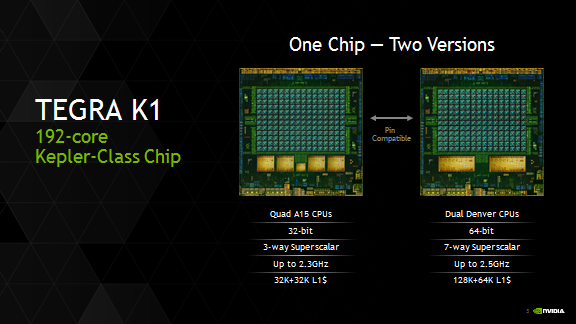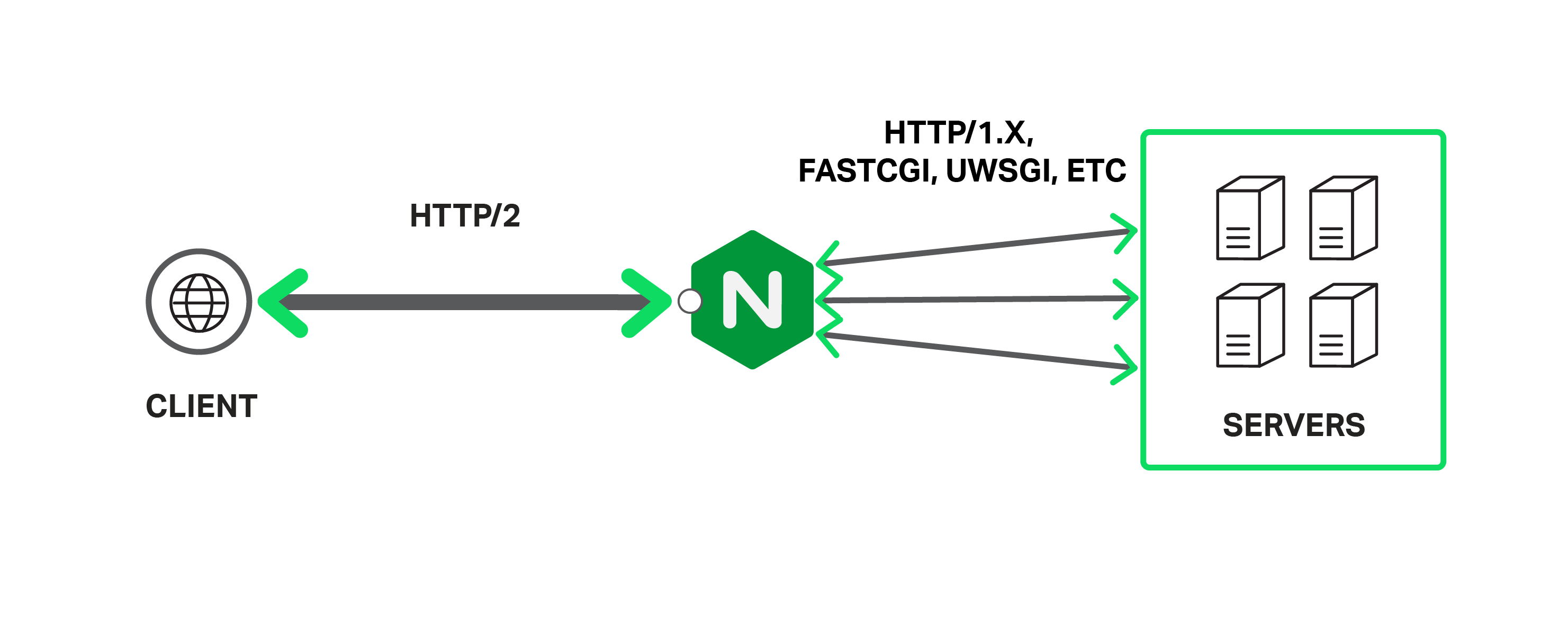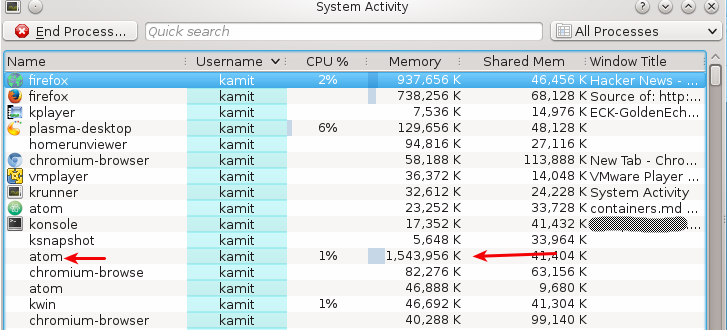NVIDIA has revealed architectural details of the 64-bit version of the Tegra K1 System-on-Chip (SoC). Being developed under the Project Denver code name, it will be the first 64-bit ARM SoC for Android.
The 32-bit version of Tegra K1 already powers several notable mobile devices, including the NVIDIA Shield tablet and the just announced Acer Chromebook 13.
From the official announcement:
This new version of Tegra K1 pairs our 192-core Kepler architecture-based GPU with our own custom-designed, 64-bit, dual-core “Project Denver” CPU, which is fully ARMv8 architecture compatible. Further, Denver is fully pin compatible with the 32-bit Tegra K1 for ease of implementation and faster time to market
…
Denver is designed for the highest single-core CPU throughput, and also delivers industry-leading dual-core performance. Each of the two Denver cores implements a 7-way superscalar microarchitecture (up to 7 concurrent micro-ops can be executed per clock), and includes a 128KB 4-way L1 instruction cache, a 64KB 4-way L1 data cache, and a 2MB 16-way L2 cache, which services both cores.
Denver implements an innovative process called Dynamic Code Optimization, which optimizes frequently used software routines at runtime into dense, highly tuned microcode-equivalent routines. These are stored in a dedicated, 128MB main-memory-based optimization cache. After being read into the instruction cache, the optimized micro-ops are executed, re-fetched and executed from the instruction cache as long as needed and capacity allows.
Devices powered by the 64-bit version of Tegra K1 should be on the market later this year. For more on what this means for those devices, read the official design and performance description here.

Dieshots of 32- and 64-bit versions of NVIDIA Tegra K1 mobile processor







